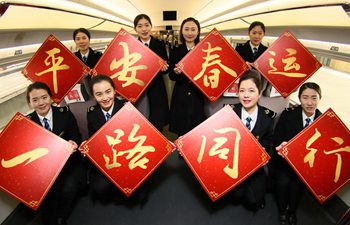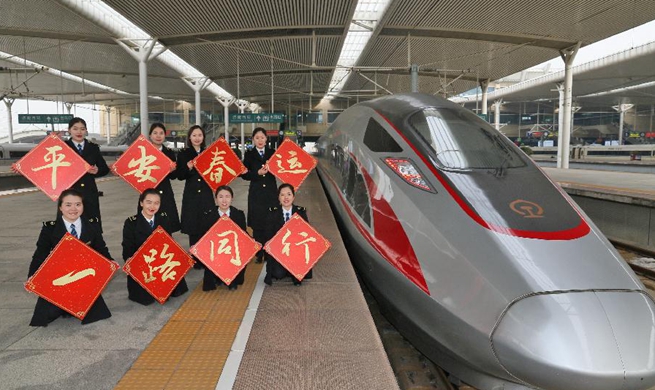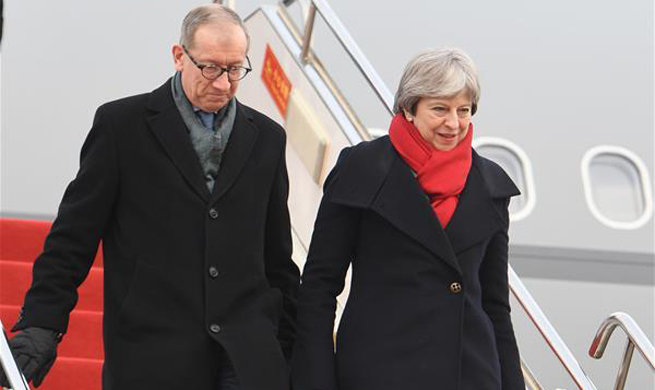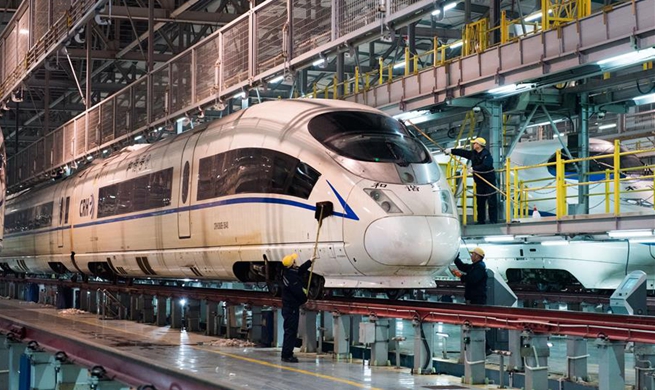BEIJING, Jan. 31 (Xinhua) -- In a clear attempt to cater to his nationalistic base, U.S. President Donald Trump pledged to scrap "unfair trade practices" with foreign partners in his first State of the Union address on Tuesday.
After listing a raft of figures that are meant to prove the success of his economic policy in the year, Trump accentuated his endeavor to straighten up U.S trade which allegedly has suffered great loss due to "unfair practices" of other countries.
"America has finally turned the page on decades of unfair trade deals that sacrificed our prosperity and shipped away our companies, our jobs and our wealth....The era of economic surrender is totally over. From now on, we expect trading relationships to be fair and, very importantly, reciprocal," he said.
While such remarks do not surprise anyone paying attention to Trump's "America First" doctrine, they still deserve serious discussion so as to identify the potential dangers of U.S. attempt to re-model global trade, based on its own terms rather than the global consensus.
A few days ago at Davos, Switzerland, Trump, though adopting a more conciliatory tone regarding his signature "America First" mantra, put fair trade before free trade to justify Washington's slew of actions in recent months that are widely interpreted as protectionism.
As the world's biggest economy and the sole super power, the United States is undoubtedly among the top beneficiaries of global trade, a system running on rules which Washington played a key role in making.
It seems that the Trump administration desires a new set of rules that suits its selfish interests, without giving much thought to the potential disturbances to the global economy, which is currently undergoing mild recovery but still far from sustainable growth.
Decades of globalization has intensified the link between countries and nowadays the well-being of one nation is more than ever relied on that of others.
Free trade allows countries to better tap their comparative advantages and is in its nature a win-win solution, rather than a zero-sum game that must have winners and losers.
It is no exaggeration that the United States has irked neighboring Canada and Mexico by renegotiating the North American Free Trade Agreement (NAFTA), a bad trade deal according to Trump, and has annoyed EU leaders by repeatedly threatening punitive trade measures.
Washington has a lot to lose should it decide to take actions in pursuit of the vaguely-defined fair trade, which is so far only known to the world as a new weapon in the "America First" arsenal.
To convincingly define fair trade, Washington needs to hear the voices of all its major trade partners and avoid any unilateral actions.

















